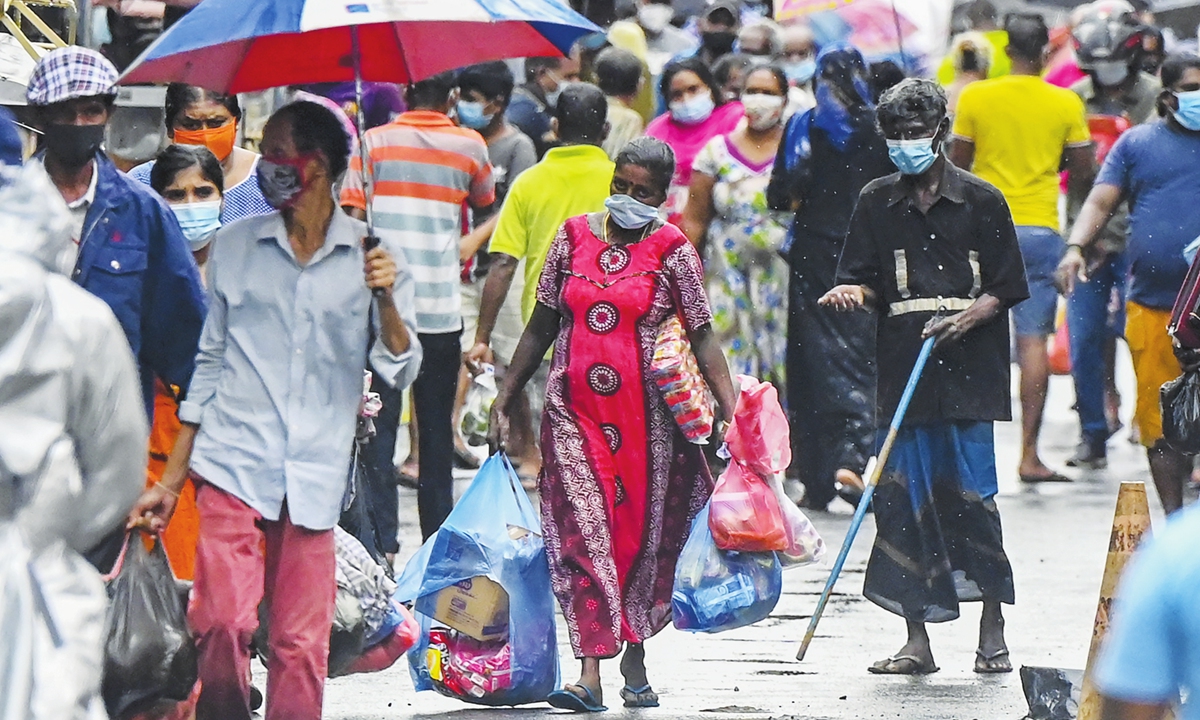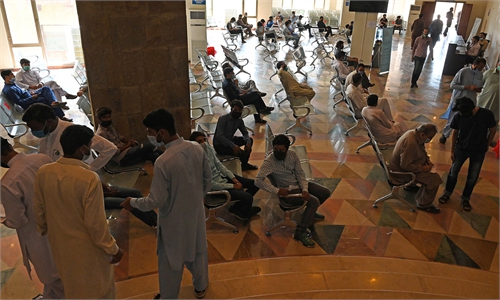COVID-19 more than health crisis
Pandemic plunges 100m additional workers into poverty

People purchase essential food items as the government imposed travel restrictions and two-week lockdown to curb the spread of COVID-19 in Colombo, Sri Lanka on Tuesday. Sri Lanka extended a week-long lockdown until June 7. Photo: AFP
The COVID-19 pandemic has pushed more than 100 million more workers into poverty, the UN said Wednesday, after working hours plummeted and access to good-quality jobs evaporated.And the labor market crisis created by the pandemic was far from over, the UN's International Labour Organization (ILO) warned in a report.
Employment was not expected to bounce back to pre-pandemic levels until 2023 at the earliest, it said.
The ILO's annual World Employment and Social Outlook report indicated that the planet would be 75 million jobs short at the end of 2021 compared to if the pandemic had not occurred.
And it would still have 23 million fewer jobs by the end of 2022 than would otherwise have been the case.
COVID-19 "has not just been a public health crisis, it's also been an employment and human crisis," ILO chief Guy Ryder told reporters.
"Without a deliberate effort to accelerate the creation of decent jobs, and support the most vulnerable members of society and the recovery of the hardest-hit economic sectors, the lingering effects of the pandemic could be with us for years in the form of lost human and economic potential, and higher poverty and inequality."
The report showed that global unemployment was expected to stand at 205 million people in 2022 - far higher than the 187 million in 2019.
But the situation is worse than official unemployment figures indicate.
Many people have held onto their jobs but have seen their working hours cut dramatically.
In 2020, 8.8 percent of global working hours were lost compared to the fourth quarter of 2019 - the equivalent of 255 million full-time jobs.
While the situation has improved, global working hours are far from having bounced back, and the world will still be short the equivalent of 100 million full-time jobs by the end of 2021, the report found.
Global employment is expected to recover more quickly in the second half of 2021.
But that recovery would be highly uneven, the ILO warned, due to inequitable access to COVID-19 vaccines. So far, more than 75 percent of all the jabs have gone to just 10 countries.
The limited capacity of most developing and emerging economies to support strong fiscal stimulus measures will also take its toll, the ILO said.
AFP



